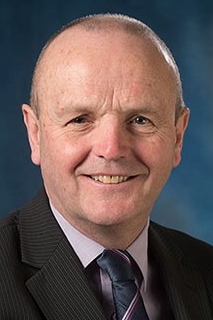The Medicines Optimisation Innovation Centre, (MOIC) which was launched in October 2015, has won a series of early successes both at home and on the international stage. The new organisation, which is based at Antrim Hospital and led by Professor Mike Scott has reached agreement with the University Medical Clinic in Gdansk in Poland following discussions with the Ministry of Health to help improve its hospital’s management of medicines through a pilot of its ‘STEPSelect’ programme. Furthermore, it has also begun an ambitious new series of study visits as part of its ‘Knowledge Transfer’ project which will bring dozens of pharmacists and pharmacy students as well as senior leaders and policy makers from across the world to see how Northern Ireland’s hospitals manage medicines at home.
These two initiatives are only the beginning as agreements with healthcare providers across Europe and the Middle East are in the pipeline, highlighting how Northern Ireland is now a world leader in the management of medicines for patients. Much has been done in recent years to improve the way medicines are used and Northern Ireland is now recognised as one of the leading regions in Europe in addressing the health and social care needs of the population through innovation in medicines optimisation.
Knowledge transfer
Speaking about the early success of the MOIC as he prepared to make a presentation to the five Northern Ireland Trusts, Professor Scott said that these are exciting times for the new organisation:
“MOIC is doing something new, something extremely innovative and something which has a huge potential for Northern Ireland. We are world leaders in the development of best practice in the use of medicines and we are confident that we can export that experience across the world for the benefit of countries as diverse as Egypt and Poland. The early win for the STEPSelect programme in Poland will allow us to export the programme across a range of European and middles eastern states whilst we are very excited about the opportunities which the study visits from across the world will yield here at home.”
He added: “In the next few months our ‘Knowledge transfer’ initiative will bring Estonian, Spanish, and a dozen Egyptian pharmacists here, with many more to come. It’s a matter of pride for me personally to see the work we are doing here at MOIC yielding such early results, and we look forward to many more announcements in the coming months.”
Quality, safety & efficiency
The MOIC grew out of the development of a new approach to managing and ensuring the cost effective use of medicine expenditure which was originally adopted by Professor Scott and his team. Historically, the approach taken to reduce medicines expenditure has been to focus almost exclusively on costs and cost-cutting initiatives. This methodology has had only limited success, as it fails to address the more fundamental aspects of the quality and safety of medicine use. Hence, in Northern Ireland a new strategy was adopted, based on the premise that quality and safety drive health gain and economy.
Thus, the model STEPSelect was developed (Safe Therapeutic Economic Pharmaceutical Selection) to ensure that medicines selection is fundamentally based on clinically related content such as efficiency, safety, documented effects on clinical end points and ease of administration. This model has now been successfully developed for healthcare systems internationally, and the agreement with the Polish hospital is the first concrete step taken in rolling this new approach out across the world.
The benefits of adopting this approach are considerable, reduced medicines related adverse events, improved quality as drug selection is based on safety & efficiency, then cost. Conversely however, it also improves efficiency in terms of cost-effective drug selection, reduced stockholding & reduction of out of date stock. STEPSelect technology has been applied to procurement of medicines in many different therapeutic groups such as statins, erythropoietin stimulating agents (ESAs) and the use of biologicals in rheumatoid arthritis. Results with the method have invariably been positive in terms of support by clinicians and quality and cost reductions of prescribing, often in the region of 20-25% per therapeutic group.
For further information contact Barry Turley of Turley PR and Public Affairs on +44-02890 737256, or +44-07734 256318.

